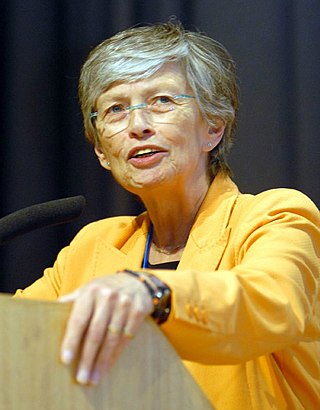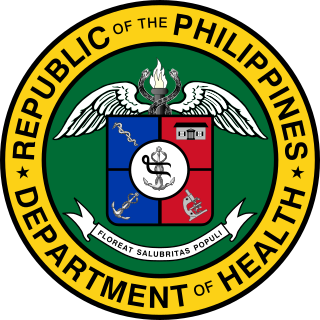Related Research Articles

The Food and Agriculture Organization of the United Nations (FAO) is a specialized agency of the United Nations that leads international efforts to defeat hunger and improve nutrition and food security. Its Latin motto, fiat panis, translates to "let there be bread". It was founded on 16 October 1945.

Foreign relations of Kazakhstan are primarily based on economic and political security consideration. The Nazarbayev administration has tried to balance relations with Russia and the United States by sending petroleum and natural gas to its northern neighbor at artificially low prices while assisting the U.S. in the War on Terror. Kazakhstan is a member of the United Nations, Collective Security Treaty Organization, Organization for Security and Co-operation in Europe, North Atlantic Cooperation Council, Commonwealth of Independent States, the Shanghai Cooperation Organisation, and NATO's Partnership for Peace program. Kazakhstan established a customs union with Russia and Belarus which eventually became the Eurasian Economic Union. President Nazarbayev has prioritized economic diplomacy into Kazakhstan's foreign policy.

The United Nations (UN) is a diplomatic and political international organization with the intended purpose of maintaining international peace and security, developing friendly relations among nations, achieving international cooperation, and serving as a center for coordinating the actions of member nations. It is widely recognised as the world's largest international organization. The UN is headquartered in New York City, in international territory with certain privileges extraterritorial to the United States, and the UN has other offices in Geneva, Nairobi, Vienna, and The Hague, where the International Court of Justice is headquartered at the Peace Palace.

The United Nations Environment Programme (UNEP) is responsible for coordinating responses to environmental issues within the United Nations system. It was established by Maurice Strong, its first director, after the United Nations Conference on the Human Environment in Stockholm in June 1972. Its mandate is to provide leadership, deliver science and develop solutions on a wide range of issues, including climate change, the management of marine and terrestrial ecosystems, and green economic development. The organization also develops international environmental agreements; publishes and promotes environmental science and helps national governments achieve environmental targets.

The United Nations Industrial Development Organization (UNIDO) is a specialized agency of the United Nations that assists countries in economic and industrial development. It is headquartered at the UN Office in Vienna, Austria, with a permanent presence in over 60 countries. As of April 2019, UNIDO comprises 170 member states, which together set the organization's policies, programs, and principles through the biannual General Conference.

The World Health Organization (WHO) is a specialized agency of the United Nations responsible for international public health. It is headquartered in Geneva, Switzerland, and has six regional offices and 150 field offices worldwide.

The United Nations System consists of the United Nations' six principal bodies, the Specialized Agencies and related organizations. The UN System includes subsidiary bodies such as the separately administered funds and programmes, research and training institutes, and other subsidiary entities. Some of these organizations predate the founding of the United Nations in 1945 and were inherited after the dissolution of the League of Nations.

Maurice Frederick Strong, was a Canadian oil and mineral businessman and a diplomat who served as Under-Secretary-General of the United Nations.
The Earth Charter is an international declaration of fundamental values and principles considered useful by its supporters for building a just, sustainable, and peaceful global society in the 21st century. Created by a global consultation process, and endorsed by organizations representing millions of people, the Charter "seeks to inspire in all peoples a sense of global interdependence and shared responsibility for the well-being of the human family, the greater community of life, and future generations." It calls upon humanity to help create a global partnership at a critical juncture in history. The Earth Charter's ethical vision proposes that environmental protection, human rights, equitable human development, and peace are interdependent and indivisible. The Charter attempts to provide a new framework for thinking about and addressing these issues. The Earth Charter Initiative organization exists to promote the Charter.
World Vision International is an ecumenical Christian humanitarian aid, development, and advocacy organization. It was founded in 1950 by Robert Pierce as a service organization to provide care for children in Korea. In 1975, emergency and advocacy work was added to World Vision's objectives. It is active in over 100 countries with a total revenue including grants, product and foreign donations of USD $3.14 billion.

Carol Bellamy is an American nonprofit executive and former politician. She is chair of the board of the Global Community Engagement and Resilience Fund (GCERF). Previously, she was director of the Peace Corps, executive director of the United Nations Children's Fund (UNICEF), and president and CEO of World Learning. She is also the chair of children's rights advocacy organization ECPAT International, working to end the sexual exploitation of children. After three terms in the New York State Senate, she was the first woman to be elected to any citywide office in NYC as President of the New York City Council, a position she held until her unsuccessful bid for Mayor of New York in 1985; she was the second to last person to hold this position.
The United Nations Volunteers (UNV) programme is a United Nations organization that contributes to peace and development through volunteerism worldwide.

The G20 or Group of 20 is an intergovernmental forum comprising 19 sovereign countries, the European Union (EU), and the African Union (AU). It works to address major issues related to the global economy, such as international financial stability, climate change mitigation and sustainable development.

The Global Fund to Fight AIDS, Tuberculosis and Malaria is an international financing and partnership organization that aims to "attract, leverage and invest additional resources to end the epidemics of HIV/AIDS, tuberculosis and malaria to support attainment of the Sustainable Development Goals established by the United Nations". This multistakeholder international organization maintains its secretariat in Geneva, Switzerland. The organization began operations in January 2002. Microsoft founder Bill Gates was one of the first donors to provide seed money for the partnership. From January 2006 it has benefited from certain US Privileges, Exemptions, and Immunities under executive order 13395, which conferred International Organizations Immunities Act status on it.
The United Nations Office for Project Services (UNOPS) is a United Nations agency dedicated to implementing humanitarian and development projects for the United Nations System, international financial institutions, governments and other partners around the world, with a focus on infrastructure, procurement and project management The organization's global headquarters is located at the UN City campus in Copenhagen, Denmark. UNOPS delivers around $3 billion worth of development projects for its partners every year. Its activities have ranged from managing the construction of schools in Afghanistan, to building shelters in Haiti, to procuring ambulances to support the Ebola response in Liberia.

The Department of Health is the executive department of the government of the Philippines responsible for ensuring access to basic public health services by all Filipinos through the provision of quality health care, the regulation of all health services and products. It is the government's over-all technical authority on health. It has its headquarters at the San Lazaro Compound, along Rizal Avenue in Manila.
James William MacNeill, OC was a Canadian consultant, environmentalist, and international public servant.
UNICEF, originally the United Nations International Children's Emergency Fund, officially United Nations Children's Fund since 1953, is an agency of the United Nations responsible for providing humanitarian and developmental aid to children worldwide. The organization is one of the most widely known and visible social welfare entities globally, operating in 192 countries and territories. UNICEF's activities include providing immunizations and disease prevention, administering treatment for children and mothers with HIV, enhancing childhood and maternal nutrition, improving sanitation, promoting education, and providing emergency relief in response to disasters.
The United Nations Entity for Gender Equality and the Empowerment of Women, also known as UN Women, is a United Nations entity charged with working for gender equality and the empowerment of women. UN Women is charged with advocating for the rights of women and girls, and focusing on a number of issues, including violence against women and violence against LGBT people.
References
- ↑ "About Us". CESO. Archived from the original on 31 October 2010. Retrieved 25 November 2010.
- ↑ "What We Do". CESO. Archived from the original on 31 October 2010. Retrieved 25 November 2010.
- ↑ "Government Funding Partners". CESO. Archived from the original on 11 October 2010. Retrieved 25 November 2010.
- ↑ "Statement of Partnership" (PDF). Partnership. Assembly of First Nations. Retrieved 28 June 2012.
- ↑ "Our Leadership". CESO. Archived from the original on 8 October 2010. Retrieved 25 November 2010.
- ↑ "A fine expression of Canadian nationhood (December 1996)". Maurice F. Strong. Retrieved 28 June 2012.
- ↑ "CESO Announces Evolution of Its Brand and New Name, Catalyste+".